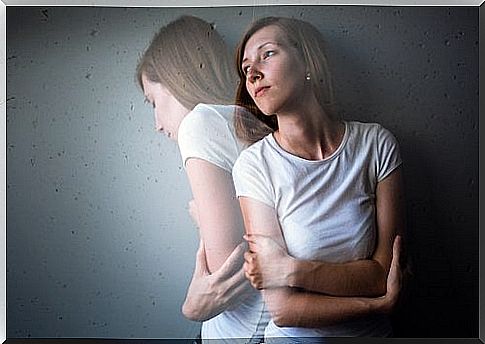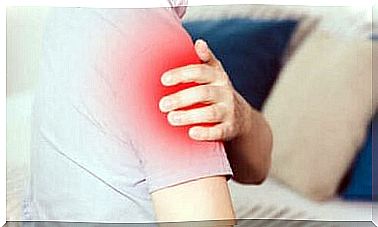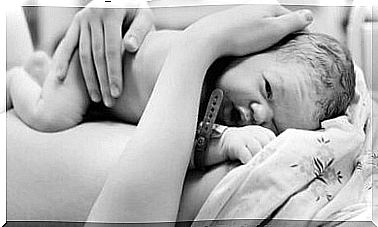Symptoms Of Depression – Never Ignore Them!

Did you know that depression symptoms affect millions of people around the world? Indeed, depression is one of the most common diagnoses in health centers today. Most of us feel sad or anxious at some point in our lives, but these are not necessarily symptoms of depression.
Why do so many people become depressed? The answer is simple: tremendous pressure at work, feeling of loneliness, family problems, lack of personal space, constant need to obtain material goods … The symptoms of depression can be many, often they are very personal and depend on our situation.
Remember that each of us processes emotions in our own way. The treatment of depression is therefore carried out on several levels: therapy, pharmacological help, and social support. However, the most important factor in fighting this problem is the patient’s inner willingness to recover and return to normal life. To achieve this goal, you must learn to quickly identify the symptoms of depression and deal with them.
The most common symptoms of depression
Today we present the most common symptoms of depression. Be sure to read and make sure that you also do not suffer from depressive disorders.
Usually, GPs do not have enough time to make an accurate diagnosis.

They focus more on specific issues like headache and insomnia. That is why it is very important for us to be able to observe our emotions ourselves and to be aware of what is happening to our body. Among other things, he draws attention to discouragement and sadness – they usually accompany psychosomatic diseases.
They are side effects of emotional problems that have not been properly resolved. Take a closer look at the symptoms below and if you identify at least four of them, it could be said that they are symptoms of depression.
1. Symptoms of depression: insomnia
We don’t mean one-off nights when you find it difficult to sleep. It is a chronic condition that prevents restorative rest and makes you wake up in the morning tired and without the will to live. Usually, insomnia is caused by worries that keep us awake and keep us from falling asleep.
Many people use sleeping pills in such situations. However, it should be remembered that they do not solve the problem, but only temporarily alleviate it.
2. Appetite disturbances
Have you noticed that the more anxious you are, the more you feel like eating? Or the other way around – have you completely lost your appetite and force yourself to eat?
Many people with symptoms of depression gain weight for no apparent reason, while others are on the verge of becoming anorexic. Each organism reacts in its own way to mental problems.
3. Obsessive thoughts
Some thoughts won’t leave our mind: questions, images or memories that we cannot forget. These obsessive thoughts fill our soul with anxiety that we cannot control.
Consequently, this inner fear leads to mental exhaustion and great despair.
4. Negative thoughts and guilt
Apart from obsessive thoughts, there is also a very characteristic negative attitude towards the world. We see everything in black and we lose the will to act in the very morning, right after getting out of bed. Additionally, there is a feeling of guilt.

We are often unable to accept help from kind people and prefer to spend our days alone.
5. Problems with concentration
Depressed people seem absent and find it difficult to focus on any specific activity. They are tired and additionally discouraged by others pointing out their incompetence or mistakes.
6. Difficulty making decisions
You know perfectly well that you should ask for help without which you will not be able to cope with depression. However, you feel incapable of it. Helplessness, physical and mental fatigue are so great that you cannot cope with them. You feel fragile and vulnerable, unable to make important decisions.
7. Huge morning fatigue
For most depressed people, mornings are the worst time of the day. The very fact of opening your eyes and the need to face the coming day is terrifying. We lack the will to act, we feel sluggish, we lack the strength to get out of bed.
8. Photophobia
One of the hallmarks of depression is photophobia. Sick people like to stay in darkened rooms with the curtains drawn. They definitely choose solitude – they feel safest that way.
9. Physical pain
Migraines, muscle aches, digestive problems, palpitations, chronic fatigue … These are psychomatic symptoms that can indicate depression.

10. Lack of social interest
We choose solitude rather than meeting friends or family. At the same time, we lose interest in our partner and do not tolerate advice from others about our condition. We have the impression that no one is able to understand what we feel and what is happening with our body.
How Can I Cope With Depression?
How to win the fight against depression? First of all, we need to call things a spade a spade: depression can be cured when we have the will to recover and open ourselves to help from people and specialists who are kind to us.
First, think that you deserve to be happy again. Later, find the strength to regain your will to live and recover from depression. The past does not matter anymore, what counts is now and what is waiting for us. Therefore, try to be happy here and now.

Depression is treated with small steps, through daily achievements such as going for a walk or cooking a tasty dinner. Pamper yourself: change your hairstyle, buy yourself a new dress, go to the cinema, arrange a meeting with a friend or other kind person.
Over time, it will be time for major changes: sign up for an interesting course or set yourself a goal that requires effort. Each day you will gradually regain your self-confidence and increase your self-esteem. Soon after depression there will be no trace.
Remember that we all have the right to fall, but also the duty to rise after it.









